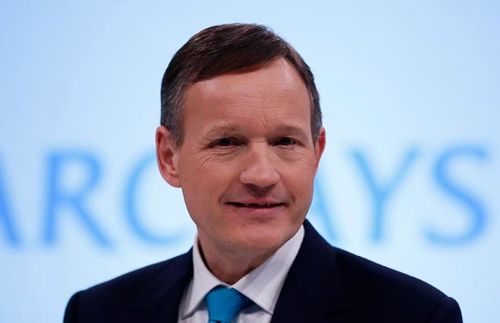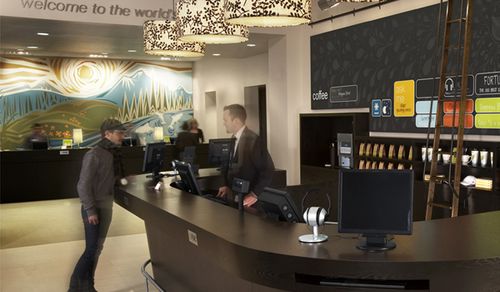
Building on yesterday’s discussion of Marmite banking, it’s not a simple question of should we be digital? nor a question of where does digital sit? but a question of all digital.
Those who ask the first two questions are thinking of digital banking as a channel; those who get the last point, understand.
For example, a digital channel debate would go something like: we’re a branch-led bank and digital means mobile social doesn’t it?
A digital bank would just say: whether branch, online or mobile, the digital infrastructure provides a consistent experience for all.
That’s why it irks me to have seen so many challenger banks appear in the UK, and yet none of them are digital.
We have Virgin Money, William & Glyns, TSB and OneSavings all created from old banks (Northern Rock, RBS, Lloyds and Kent Reliance Building Society respectively).
We have emerging players and overseas banks stepping into the UK with their branch and ethical offers from the likes of Handelsbanken, Shawnbrook, Aldermore, Triodos and Tungsten.
We have new banks such as Metro Bank, a branch-based bank, and the real challenger bank such as Santander.
We have basket case banks like the Co-operative Bank, whose reputation will be forever tarnished after creating a massive capital shortfall whilst being run by the Crystal Methodist, Paul Flowers.
We have other players like Clydesdale and Yorkshire under the National Australia Group and even Weatherbys Bank, an old horse racing bank established in 1770.
But not one is a digital bank player fit for 21st century, as they’re all treading the traditional banking boards.
Some are doing things a little different.
Metro have pretty much completely reshaped their bank’s IT since launch, and are far more digitised than they were at the start.
Nevertheless, the repetition of old bank methods is, I suspect, the reason why Metro co-founder Anthony Thomson left.
After all, in launching what he claims will be the first true UK digital bank, Atom Bank, Anthony does say: “The rate of change in mobile in particular has just been so fast that opening a bank with bank branches would be like BT putting telephone kiosks back on the high street.”
You may also have noticed that I left out Tesco Bank.
Tesco Bank launched their current account last week, and it almost slipped by me that this is now a branchless bank too. Their account is an app.

“Benny Higgins runs a bank without branches. The boss of Tesco Bank reckons they are a thing of the past. Customers are turning to digital channels to handle their personal finances. So the current account that Tesco Bank finally launched last week – more than three years after first raising the idea – can be opened over the internet or, if necessary, via a chat with one of its call centres.”
[Benny Higgins is speaking at the Financial Services Club Quarterly Dinner on 4th November 2014 FYI]
And we should note that incumbents do get the Digital message.
“The same sources of disruption that we have seen in other sectors - disintermediation, data, speed, cost saving, consumer expectations now have sufficient momentum to overcome barriers to entry in our sector. Digital channels offer customers fundamental advantages of quality of service and convenience. Peer-to-peer lending, direct payment transfers, exchange platforms that allow customers to trade foreign exchange direct are all transformative developments and, at Barclays, we can see the impact across all of our businesses.”
Antony Jenkins, CEO, Barclays Bank, The Times, June 2014

So the sleeping giants are awakening and, although there is still a dearth of activity in the Digital Bank space (in that I’m yet to see one), give it five years and most will have evolved or revolutionised into being one.
Finally, it’s not a question of branch-led or digital-led, but a question of leveraging the branch on the digital infrastructure.
If you believe branches are dead, then so are you.
From this week’s Economist:
There's A Fast-Growing US Bank That Customers Actually Love
An odd bank from an odd city is doing oddly well.
The counter just inside the entrance to the branch of Umpqua Bank offers locally made hand cream rather than deposit slips. It has recently been used to peddle pottery, bike components and glasses frames, among other local products; eager local merchants have booked up the stand for the next year and a half.
Much of the rest of the branch is put to unusual uses as well, including art exhibitions, yoga classes and "stitch and bitch" sessions (group knitting). At another branch located near an old-persons' home, the manager hooked up a gaming console to large monitors hanging on the wall to create a popular virtual bowling league.

Umpqua Bank has 364 branches spread across Washington, Oregon, California, Nevada and Utah, and it intends to add more. This sort of expansion runs contrary to accepted wisdom, which holds that cheap competition from internet banking is killing off the physical sort. To the extent that branches still make economic sense, runs the general view, it is in clumps (for efficient marketing), filled with aggressive salespeople pushing ancillary products.
Perhaps as a result, few customers warm to their local bank branch. Most offer similar products in similarly drab surroundings. Streets crowded with them are dull during the day and dead after 5pm. Visiting them is tolerable at best and often tedious, thanks to long queues and tiresome paperwork.
Umpqua, in contrast, is trying to create outlets that neighbourhoods will welcome and people will want to visit. It attempts to make even the most mundane transaction a treat. Tellers, for example, hand out a chocolate with each cash withdrawal.
It goes to great lengths to cut the time and form-filling involved in obtaining a mortgage--typically an agonising process. Prominently displayed at every branch is a phone which connects directly to the desk of Ray Davis, the bank's president. If he is at his desk, he answers. Typically, he says, the caller just wants to know if the line is genuine.
The bank prides itself on doing everything differently. Instead of sending out junk mail offering consumer loans, Umpqua employees attached small flyers to potted plants and placed them on 1,700 doorsteps in the neighbourhood they were targeting. Every day begins with a "motivational moment" (read something inspiring, play marshmallow dodgeball or hold a trivia quiz; do not refer to corporate memos or procedures). Phone calls are answered with the words "Umpqua, the world's greatest bank".
Umpqua's most unusual trait, however, may be its growth. In the early 1990s, it had only six branches. Its biggest expansion came in April, when it doubled in size by acquiring Sterling, a regional rival. Mr. Davis believes branches are vital for the cheap funds they bring in through deposits and the opportunity they provide to market more profitable products than current accounts. Such cross-selling is easier when customers enjoy visiting.
The bank's appeal also allows it to pay a little less interest than the norm on deposits, and charge a bit more on loans, giving it high lending margins. Barclays reckons that by the end of next year, its return on equity will be 14%, far above the average.
Umpqua's success suggests that banking is not merely about hard numbers. But instilling its culture at Sterling, a bank of equal size, and sustaining it through further expansion will be hard. The combination has $22 billion in assets, placing it at the small end of large.
Regulators will begin paying more attention, and when Umpqua passes $50 billion in assets — not a far-fetched prospect — scrutiny will increase exponentially. Banks subjected to this level of red tape describe it as all-consuming. Regulators often treat apparent strengths, such as the higher interest rates Umpqua is able to charge borrowers, as inherently suspicious.
Umpqua has shown an ability to delight customers and avoid the censure that has bedevilled its bigger competitors. Its rise is evidence that a small bank can indeed be different. It must now prove that a large one can be as well.
Chris M Skinner
Chris Skinner is best known as an independent commentator on the financial markets through his blog, TheFinanser.com, as author of the bestselling book Digital Bank, and Chair of the European networking forum the Financial Services Club. He has been voted one of the most influential people in banking by The Financial Brand (as well as one of the best blogs), a FinTech Titan (Next Bank), one of the Fintech Leaders you need to follow (City AM, Deluxe and Jax Finance), as well as one of the Top 40 most influential people in financial technology by the Wall Street Journal's Financial News. To learn more click here...

